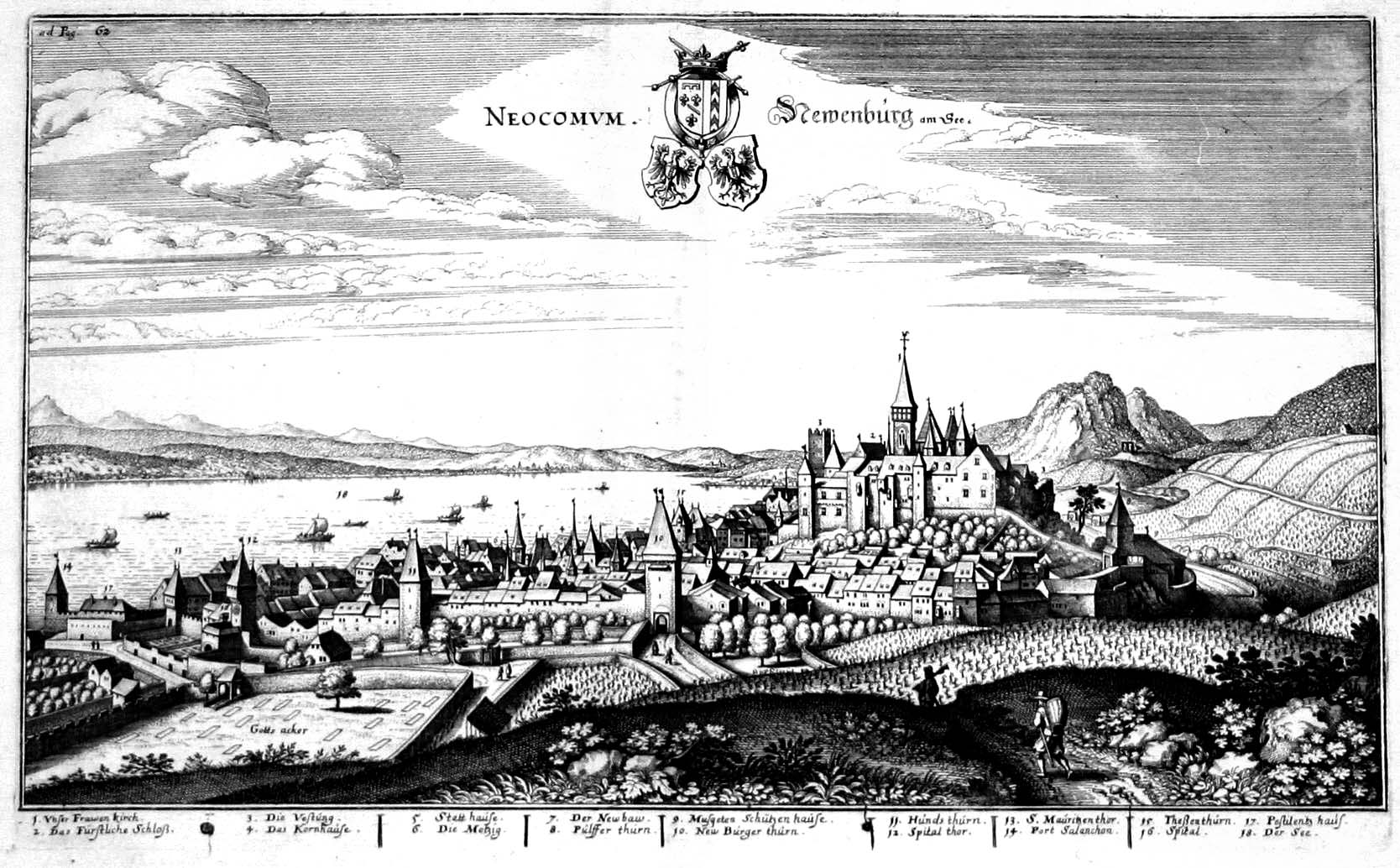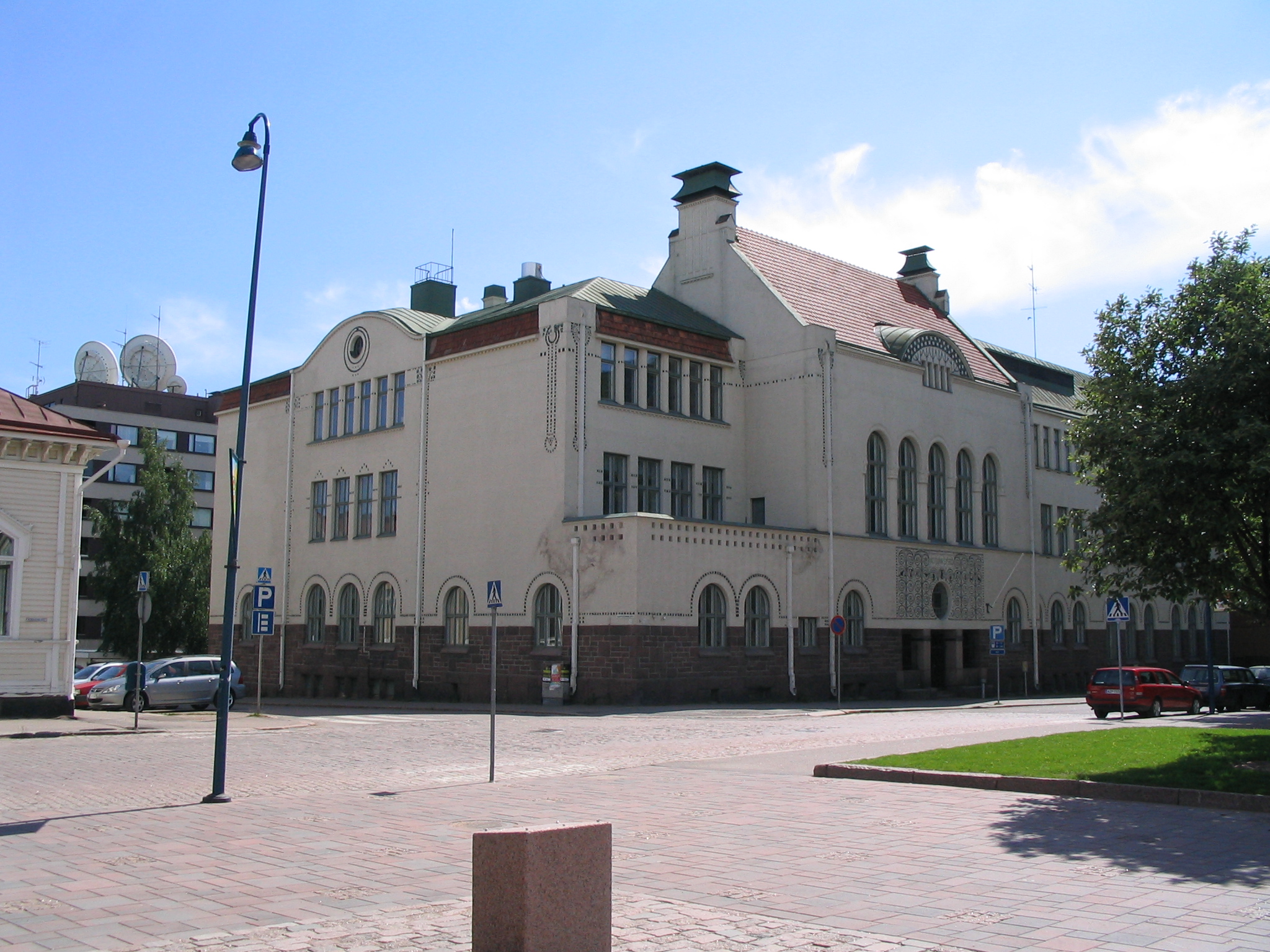|
Eulalie Piccard
Eulalie Piccard (Saint Petersburg, 26 October 1879 - Neuchâtel, June 1957), sometimes called Eulalie Piccard Guée, was a Russian-Swiss novelist, translator and teacher, writing in French. She was one of the first literary writers to explore the transformation of Russia into the Soviet Union and the police state that was constructed there under Joseph Stalin. While her work does not approach the literary force of Alexander Solzhenitsyn or Varlam Shalamov and didn't reach major public attention, it represented an early sustained effort to expose legal and penal developments in the Soviet Union that, in the 1930s and 1940s, were little discussed outside Russian emigrant circles. When show trials and labour camps were referred to in newspapers and books at the time, the tone was generally sensational and made little attempt to connect them to Soviet political culture or to everyday life. Piccard, who was born in the late 1870s, made a teaching career in Russia, while marrying a Swis ... [...More Info...] [...Related Items...] OR: [Wikipedia] [Google] [Baidu] |
Saint Petersburg
Saint Petersburg ( rus, links=no, Санкт-Петербург, a=Ru-Sankt Peterburg Leningrad Petrograd Piter.ogg, r=Sankt-Peterburg, p=ˈsankt pʲɪtʲɪrˈburk), formerly known as Petrograd (1914–1924) and later Leningrad (1924–1991), is the second-largest city in Russia. It is situated on the Neva River, at the head of the Gulf of Finland on the Baltic Sea, with a population of roughly 5.4 million residents. Saint Petersburg is the fourth-most populous city in Europe after Istanbul, Moscow and London, the most populous city on the Baltic Sea, and the world's northernmost city of more than 1 million residents. As Russia's Imperial capital, and a historically strategic port, it is governed as a federal city. The city was founded by Tsar Peter the Great on 27 May 1703 on the site of a captured Swedish fortress, and was named after apostle Saint Peter. In Russia, Saint Petersburg is historically and culturally associated with t ... [...More Info...] [...Related Items...] OR: [Wikipedia] [Google] [Baidu] |
1879 Births
Events January–March * January 1 – The Specie Resumption Act takes effect. The United States Note is valued the same as gold, for the first time since the American Civil War. * January 11 – The Anglo-Zulu War begins. * January 22 – Anglo-Zulu War – Battle of Isandlwana: A force of 1,200 British soldiers is wiped out by over 20,000 Zulu warriors. * January 23 – Anglo-Zulu War – Battle of Rorke's Drift: Following the previous day's defeat, a smaller British force of 140 successfully repels an attack by 4,000 Zulus. * February 3 – Mosley Street in Newcastle upon Tyne (England) becomes the world's first public highway to be lit by the electric incandescent light bulb invented by Joseph Swan. * February 8 – At a meeting of the Royal Canadian Institute, engineer and inventor Sandford Fleming first proposes the global adoption of standard time. * March 3 – United States Geological Survey is founded. * March 11 – Th ... [...More Info...] [...Related Items...] OR: [Wikipedia] [Google] [Baidu] |
Translators To French
Translation is the communication of the meaning of a source-language text by means of an equivalent target-language text. The English language draws a terminological distinction (which does not exist in every language) between ''translating'' (a written text) and ''interpreting'' (oral or signed communication between users of different languages); under this distinction, translation can begin only after the appearance of writing within a language community. A translator always risks inadvertently introducing source-language words, grammar, or syntax into the target-language rendering. On the other hand, such "spill-overs" have sometimes imported useful source-language calques and loanwords that have enriched target languages. Translators, including early translators of sacred texts, have helped shape the very languages into which they have translated. Because of the laboriousness of the translation process, since the 1940s efforts have been made, with varying degrees o ... [...More Info...] [...Related Items...] OR: [Wikipedia] [Google] [Baidu] |
Translators From Russian
Translation is the communication of the meaning of a source-language text by means of an equivalent target-language text. The English language draws a terminological distinction (which does not exist in every language) between ''translating'' (a written text) and '' interpreting'' (oral or signed communication between users of different languages); under this distinction, translation can begin only after the appearance of writing within a language community. A translator always risks inadvertently introducing source-language words, grammar, or syntax into the target-language rendering. On the other hand, such "spill-overs" have sometimes imported useful source-language calques and loanwords that have enriched target languages. Translators, including early translators of sacred texts, have helped shape the very languages into which they have translated. Because of the laboriousness of the translation process, since the 1940s efforts have been made, with varying degree ... [...More Info...] [...Related Items...] OR: [Wikipedia] [Google] [Baidu] |
Writers From The Russian Empire In French
A writer is a person who uses written words in different writing styles and techniques to communicate ideas. Writers produce different forms of literary art and creative writing such as novels, short stories, books, poetry, travelogues, plays, screenplays, teleplays, songs, and essays as well as other reports and news articles that may be of interest to the general public. Writers' texts are published across a wide range of media. Skilled writers who are able to use language to express ideas well, often contribute significantly to the cultural content of a society. The term "writer" is also used elsewhere in the arts and music, such as songwriter or a screenwriter, but also a stand-alone "writer" typically refers to the creation of written language. Some writers work from an oral tradition. Writers can produce material across a number of genres, fictional or non-fictional. Other writers use multiple media such as graphics or illustration to enhance the commun ... [...More Info...] [...Related Items...] OR: [Wikipedia] [Google] [Baidu] |
Women Writers From The Russian Empire
A woman is an adult female human. Prior to adulthood, a female human is referred to as a girl (a female child or adolescent). The plural ''women'' is sometimes used in certain phrases such as "women's rights" to denote female humans regardless of age. Typically, women inherit a pair of X chromosomes, one from each parent, and are capable of pregnancy and giving birth from puberty until menopause. More generally, sex differentiation of the female fetus is governed by the lack of a present, or functioning, SRY-gene on either one of the respective sex chromosomes. Female anatomy is distinguished from male anatomy by the female reproductive system, which includes the ovaries, fallopian tubes, uterus, vagina, and vulva. A fully developed woman generally has a wider pelvis, broader hips, and larger breasts than an adult man. Women have significantly less facial and other body hair, have a higher body fat composition, and are on average shorter and less muscular than men. Throug ... [...More Info...] [...Related Items...] OR: [Wikipedia] [Google] [Baidu] |
Swiss Educational Theorists
Swiss may refer to: * the adjectival form of Switzerland *Swiss people Places *Swiss, Missouri * Swiss, North Carolina *Swiss, West Virginia *Swiss, Wisconsin Other uses *Swiss-system tournament, in various games and sports *Swiss International Air Lines **Swiss Global Air Lines, a subsidiary *Swissair, former national air line of Switzerland *.swiss alternative TLD for Switzerland See also *Swiss made, label for Swiss products *Swiss cheese (other) *Switzerland (other) *Languages of Switzerland, none of which are called "Swiss" *International Typographic Style, also known as Swiss Style, in graphic design *Schweizer (other), meaning Swiss in German *Schweitzer, a family name meaning Swiss in German *Swisse Swisse is a vitamin, supplement, and skincare brand. Founded in Australia in 1969 and globally headquartered in Melbourne, and was sold to Health & Happiness, a Chinese company based in Hong Kong previously known as Biostime International, in ... [...More Info...] [...Related Items...] OR: [Wikipedia] [Google] [Baidu] |
1957 Deaths
1957 (Roman numerals, MCMLVII) was a Common year starting on Wednesday, common year starting on Tuesday of the Gregorian calendar, the 1957th year of the Common Era (CE) and ''Anno Domini'' (AD) designations, the 957th year of the 2nd millennium, the 57th year of the 20th century, and the 8th year of the 1950s decade. Events January * January 1 – The Saarland joins West Germany. * January 3 – Hamilton Watch Company introduces the first electric watch. * January 5 – South African player Russell Endean becomes the first batsman to be Dismissal (cricket), dismissed for having ''handled the ball'', in Test cricket. * January 9 – British Prime Minister Anthony Eden resigns. * January 10 – Harold Macmillan becomes Prime Minister of the United Kingdom. * January 11 – The African Convention is founded in Dakar. * January 14 – Kripalu Maharaj is named fifth Jagadguru (world teacher), after giving seven days of speeches before 500 Hindu scholars. * January 15 – The film ' ... [...More Info...] [...Related Items...] OR: [Wikipedia] [Google] [Baidu] |
Sophie Piccard
Sophie Piccard (1904–1990) was a Russian-Swiss mathematician who became the first female full professor (professor ordinarius) in Switzerland. Her research concerned set theory, group theory, linear algebra, and the history of mathematics.. Early life and education Piccard was born on September 27, 1904, in Saint Petersburg, with a French Huguenot mother and a Swiss father. She earned a diploma in Smolensk in 1925, where her father, Eugène-Ferdinand Piccard, was a university professor and her mother a language teacher at the lycée. Soon afterwards she moved to Switzerland with her parents, escaping the unrest in Russia that her mother, Eulalie Piccard, would become known for writing about. Sophie Piccard's Russian degree was worthless in Switzerland, and she earned another from the University of Lausanne in 1927, going on to complete a doctorate there in 1929 under the supervision of Dmitry Mirimanoff. Career and later life She worked outside of mathematics until 1936, when ... [...More Info...] [...Related Items...] OR: [Wikipedia] [Google] [Baidu] |
Neuchâtel
, neighboring_municipalities= Auvernier, Boudry, Chabrey (VD), Colombier, Cressier, Cudrefin (VD), Delley-Portalban (FR), Enges, Fenin-Vilars-Saules, Hauterive, Saint-Blaise, Savagnier , twintowns = Aarau (Switzerland), Besançon (France), Sansepolcro (Italy) Neuchâtel (, , ; german: Neuenburg) is the capital of the Swiss canton of Neuchâtel, situated on the shoreline of Lake Neuchâtel. Since the fusion in 2021 of the municipalities of Neuchâtel, Corcelles-Cormondrèche, Peseux, and Valangin, the city has approximately 45,000 inhabitants (80,000 in the metropolitan area). The city is sometimes referred to historically by the German name ; both the French and German names mean "New Castle". It was originally part of the Kingdom of Burgundy, then part of the Holy Roman Empire and later under Prussian control from 1707 until 1848, with an interruption during the Napoleonic Wars from 1802 to 1814. In 1848, Neuchâtel became a republic and a canton of Switzerland. Neuch� ... [...More Info...] [...Related Items...] OR: [Wikipedia] [Google] [Baidu] |
Lyceum
The lyceum is a category of educational institution defined within the education system of many countries, mainly in Europe. The definition varies among countries; usually it is a type of secondary school. Generally in that type of school the things that are taught are basic science and also in some part of that type of schools, some introduction to specific kind of jobs also may be done. History ''Lyceum'' is a Latin rendering of the Ancient Greek (), the name of a '' gymnasium'' in Classical Athens dedicated to Apollo Lyceus. This original lyceum is remembered as the location of the peripatetic school of Aristotle. Some countries derive the name for their modern schools from the Latin but use the Greek name for the ancient school: for example, Dutch has (ancient) and (modern), both rendered ''lyceum'' in English (note that in classical Latin the ''C'' in was always pronounced as a ''K'', not a soft ''C'', as in modern English). The name ''lycée'' was retrieved and utili ... [...More Info...] [...Related Items...] OR: [Wikipedia] [Google] [Baidu] |




.jpg)

